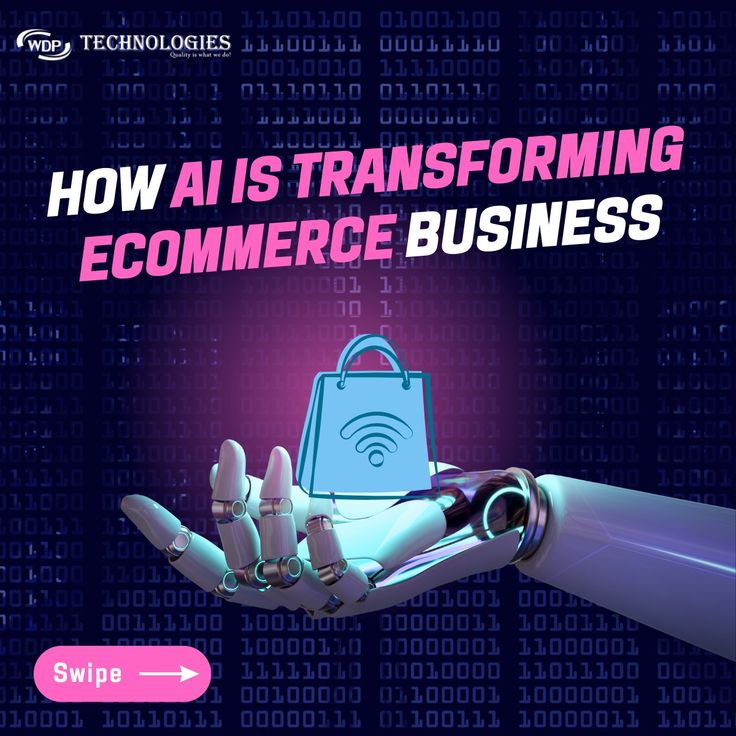Blockchain for Supply Chain: Transparency & Traceability

Blockchain enhances supply chain transparency & traceability, providing businesses with secure, immutable records. Gain real-time insights, reduce fraud, and build customer trust.
Blockchain for Supply Chain Transparency and Traceability
In today's complex and interconnected global economy, supply chain management has become a critical factor for business success. Consumers are increasingly demanding more information about the products they purchase, including their origin, production methods, and journey through the supply chain. This demand for transparency and traceability has led businesses to explore innovative technologies, and blockchain has emerged as a promising solution.
Blockchain, at its core, is a distributed, immutable ledger that records transactions across a network of computers. This decentralized nature makes it highly secure and resistant to tampering, as any changes to the ledger require consensus from multiple participants. In the context of supply chain management, blockchain can be used to create a shared, transparent record of every step in the product's journey, from raw materials to the end consumer.
One of the key benefits of blockchain for supply chain is enhanced transparency. By recording every transaction on the blockchain, businesses can provide consumers with a complete and verifiable history of the product. This can include information such as the origin of the raw materials, the manufacturing process, the transportation methods, and the storage conditions. This level of transparency can help build trust with consumers and differentiate products in a competitive market.
Traceability is another significant advantage of blockchain in supply chain management. The ability to track and trace products throughout the supply chain is crucial for identifying and addressing issues such as counterfeit goods, product recalls, and ethical sourcing. With blockchain, businesses can quickly identify the source of a problem and take corrective action, minimizing the impact on consumers and brand reputation. For example, if a food product is found to be contaminated, blockchain can be used to trace the contamination back to its source, allowing for targeted recalls and preventing further spread of the problem.
Beyond transparency and traceability, blockchain can also improve efficiency and reduce costs in the supply chain. By automating processes such as documentation and payment, blockchain can eliminate intermediaries and streamline operations. This can lead to faster delivery times, reduced administrative costs, and improved overall efficiency. For instance, smart contracts, self-executing agreements written into the blockchain code, can automate payment upon delivery of goods, reducing the need for manual invoice reconciliation and payment processing.
However, implementing blockchain in supply chain management is not without its challenges. One of the main hurdles is the need for collaboration and data sharing among all participants in the supply chain, including suppliers, manufacturers, distributors, and retailers. This requires a high level of trust and willingness to share data, which can be difficult to achieve in practice. Another challenge is the lack of standardization in blockchain technology, which can make it difficult to integrate different blockchain platforms and ensure interoperability.
Despite these challenges, the potential benefits of blockchain for supply chain transparency and traceability are significant. As the technology matures and becomes more widely adopted, it is likely to play an increasingly important role in shaping the future of supply chain management. Businesses that embrace blockchain early on can gain a competitive advantage by improving transparency, enhancing traceability, and streamlining operations.
In conclusion, blockchain technology offers a powerful solution for enhancing transparency and traceability in supply chain management. By providing a shared, immutable record of every step in the product's journey, blockchain can help build trust with consumers, reduce costs, and improve efficiency. While there are challenges to overcome, the potential benefits of blockchain are significant, and businesses that embrace this technology are well-positioned to succeed in today's increasingly complex and demanding global market. As consumer demand for transparency and ethical sourcing continues to grow, blockchain is poised to become an essential tool for responsible and sustainable supply chain management.
In today's complex and interconnected global economy, supply chain management has become a critical factor for business success. Consumers are increasingly demanding more information about the products they purchase, including their origin, production methods, and journey through the supply chain. This demand for transparency and traceability has led businesses to explore innovative technologies, and blockchain has emerged as a promising solution.
Blockchain, at its core, is a distributed, immutable ledger that records transactions across a network of computers. This decentralized nature makes it highly secure and resistant to tampering, as any changes to the ledger require consensus from multiple participants. In the context of supply chain management, blockchain can be used to create a shared, transparent record of every step in the product's journey, from raw materials to the end consumer.
One of the key benefits of blockchain for supply chain is enhanced transparency. By recording every transaction on the blockchain, businesses can provide consumers with a complete and verifiable history of the product. This can include information such as the origin of the raw materials, the manufacturing process, the transportation methods, and the storage conditions. This level of transparency can help build trust with consumers and differentiate products in a competitive market.
Traceability is another significant advantage of blockchain in supply chain management. The ability to track and trace products throughout the supply chain is crucial for identifying and addressing issues such as counterfeit goods, product recalls, and ethical sourcing. With blockchain, businesses can quickly identify the source of a problem and take corrective action, minimizing the impact on consumers and brand reputation. For example, if a food product is found to be contaminated, blockchain can be used to trace the contamination back to its source, allowing for targeted recalls and preventing further spread of the problem.
Beyond transparency and traceability, blockchain can also improve efficiency and reduce costs in the supply chain. By automating processes such as documentation and payment, blockchain can eliminate intermediaries and streamline operations. This can lead to faster delivery times, reduced administrative costs, and improved overall efficiency. For instance, smart contracts, self-executing agreements written into the blockchain code, can automate payment upon delivery of goods, reducing the need for manual invoice reconciliation and payment processing.
However, implementing blockchain in supply chain management is not without its challenges. One of the main hurdles is the need for collaboration and data sharing among all participants in the supply chain, including suppliers, manufacturers, distributors, and retailers. This requires a high level of trust and willingness to share data, which can be difficult to achieve in practice. Another challenge is the lack of standardization in blockchain technology, which can make it difficult to integrate different blockchain platforms and ensure interoperability.
Despite these challenges, the potential benefits of blockchain for supply chain transparency and traceability are significant. As the technology matures and becomes more widely adopted, it is likely to play an increasingly important role in shaping the future of supply chain management. Businesses that embrace blockchain early on can gain a competitive advantage by improving transparency, enhancing traceability, and streamlining operations.
In conclusion, blockchain technology offers a powerful solution for enhancing transparency and traceability in supply chain management. By providing a shared, immutable record of every step in the product's journey, blockchain can help build trust with consumers, reduce costs, and improve efficiency. While there are challenges to overcome, the potential benefits of blockchain are significant, and businesses that embrace this technology are well-positioned to succeed in today's increasingly complex and demanding global market. As consumer demand for transparency and ethical sourcing continues to grow, blockchain is poised to become an essential tool for responsible and sustainable supply chain management.




Comments (0)
Leave a Comment